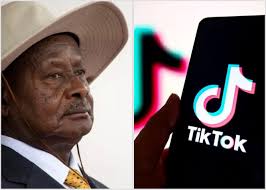In a case that has ignited widespread debate about freedom of expression and political repression in Uganda, university student Elson Tumwine has been sentenced to two months in jail following his mysterious disappearance after posting a critical TikTok video about President Yoweri Museveni.
Tumwine, a third-year agricultural student at Makerere University, vanished on June 8, 2025, after releasing a video that prosecutors say was intended to “ridicule, demean, and incite hostility” towards the president. His post, which allegedly manipulated a clip involving Uganda’s parliamentary speaker, harshly criticized Museveni’s recent apology to the Baganda people, Uganda’s largest ethnic group and accused him of failing to apologize for other alleged injustices during his four decades in power.
The student’s sudden disappearance raised alarm among activists, opposition figures, and his university. Many feared he had been abducted by state security operatives. Weeks later, Tumwine was reportedly found at a police station in Entebbe on July 13, allegedly “dumped” there by agents from Uganda’s military intelligence after being subjected to severe torture.
Despite this, Tumwine pleaded guilty to charges of offensive communication and computer misuse, asking the court for forgiveness. On Monday, he was sentenced to two months in prison by an Entebbe magistrate, who acknowledged his plea for leniency.
The verdict has sparked fresh outrage from human rights defenders and legal professionals. Lawyer and activist Godwin Toko condemned the process, stating that Tumwine had been denied adequate legal representation and was pressured into pleading guilty. “This is the apogee of injustice it is not his captors who are punished, but him, earning a criminal record at such a young age,” Toko wrote on social media.
Tumwine’s family and allies continue to reject the government’s narrative, saying the student’s disappearance and treatment reflect a growing pattern of repression under Museveni’s rule. Opposition party NUP (National Unity Platform) claims to have verified that Tumwine and another individual were illegally detained, tortured, and later released to police without due process.
Authorities have not publicly commented on the torture allegations or the broader circumstances of Tumwine’s detention.
This case is not isolated. It follows a troubling trend in Uganda, where young social media users have been harshly punished for content deemed critical of the ruling establishment. In 2024, Edward Awebwa, 24, received a six-year sentence for hate speech, and in 2023, Emmanuel Nabugodi, 21, was sentenced to over two years for creating a video criticizing Museveni.
These incidents have drawn sharp criticism from international human rights groups and watchdogs, especially as Uganda prepares for presidential elections in 2026. Concerns are mounting over the shrinking space for political dissent, digital freedom, and the criminalization of online expression in a country where more than 60% of the population is under 30 and highly active on social platforms.
With Uganda’s strict Computer Misuse Act already used to target government critics, Tumwine’s case is likely to become another rallying point for activists pushing back against censorship, abuse of power, and politically motivated arrests.













Leave a comment